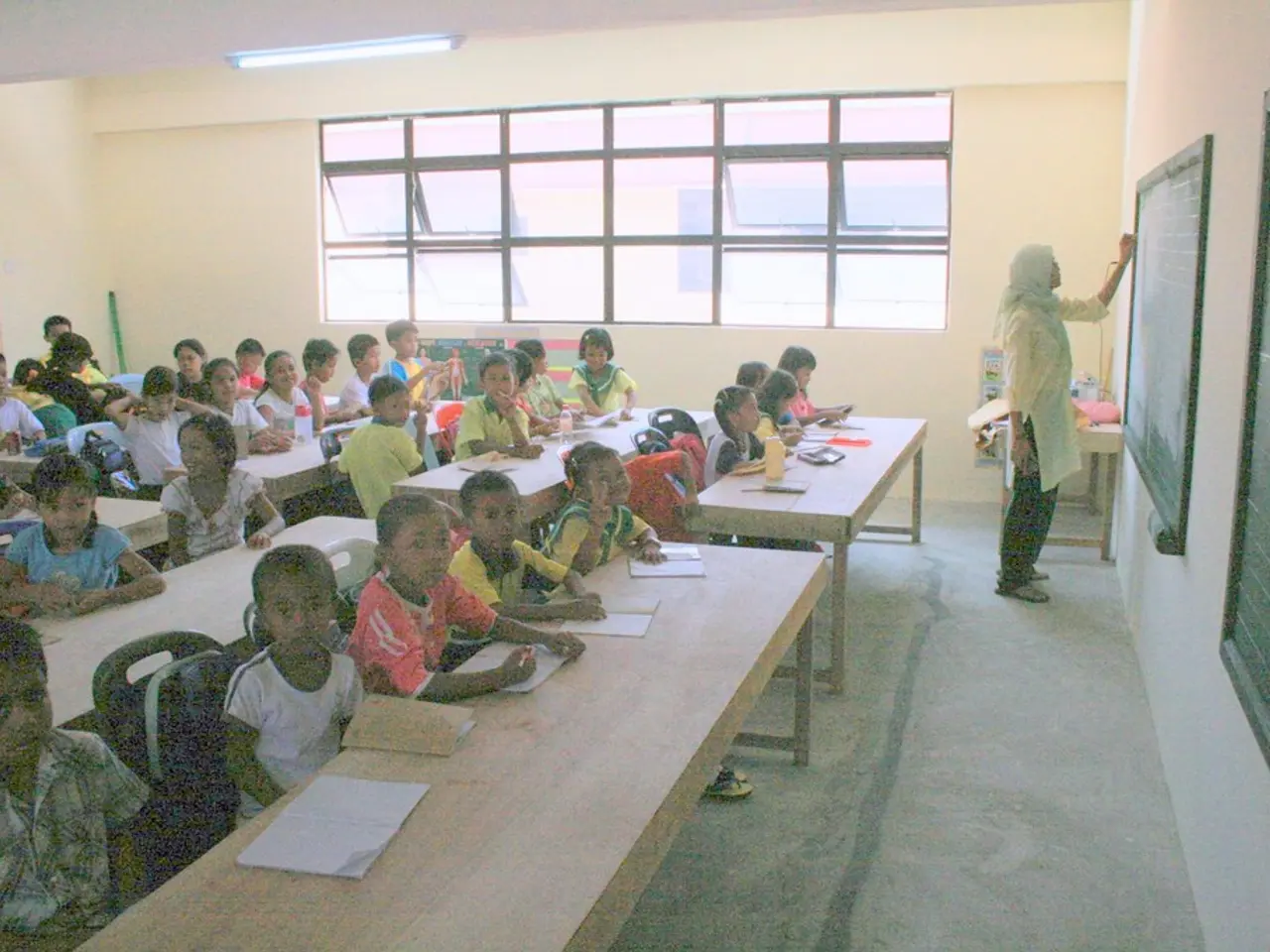Guidance on Strengthening Teachers via Functional AI Strategies
At the NYC Tech Summit 2025, Maximillian Re-Sugiura, principal of High School of Art and Design in New York City, and Dr. Andy Szeto, Academic Policy, Performance, and Assessment Lead for NYC Department of Education, discussed the transformative impact of AI on educational leadership.
Re-Sugiura suggests tracking standard work hours to identify the tasks that can be automated, while Szeto emphasises the importance of understanding the capabilities and limitations of AI tools. Both gentlemen agree that properly vetting an AI solution before attaching it to a problem is key.
In 2025, the best AI tools for time-saving tasks in educational settings focus on automation of routine tasks, personalized adaptive learning, and real-time feedback while strictly adhering to data privacy laws like COPPA and FERPA.
Top AI Tools and Their Features
- IGNITE Copilot - An AI teaching assistant for K–12 competency-based education that simplifies lesson planning and tracks student progress with data-driven insights, focusing on reducing administrative workload, and is compliant with FERPA and COPPA requirements.
- Brisk Teaching - Offers AI-powered learning tools with a 93% Common Sense Privacy rating, is fully vetted for FERPA, COPPA, and GDPR compliance, and prioritizes student and teacher data protection while enhancing educational impact.
- Gradescope and AI-based quiz tools - Automate grading, class rostering, and scheduling, designed to reduce repetitive tasks and streamline operational workflows, and integrate with LMS and SIS with privacy-first architectures featuring role-based access controls and consent management for minors.
- Adaptive AI Math Tools (e.g., Third Space Learning’s AI initiatives) - Offer personalized learning pathways and diagnostic capabilities, require teacher professional development for effective use, and emphasize accessibility and equity with features for screen readers, multilingual support, and compliance with FERPA data protection guidelines.
Effective Implementation Strategies
To effectively implement these tools, educators can follow these strategies:
- Identify Time-Consuming Tasks: Start by mapping out educator workloads to pinpoint tasks where AI can save time, such as grading, attendance tracking, and lesson planning.
- Pilot and Refine: Test AI tools in a controlled setting (one class or grade), gather feedback, assess impact on workload and student outcomes, then scale up cautiously.
- Ensure Privacy Compliance: Choose tools that encrypt data, limit access via role-based permissions, incorporate logging, and comply explicitly with FERPA and COPPA. Early involvement of legal and IT teams is recommended to ensure compliance and security.
- Consent Management: Deploy workflows to manage parental consent for minor students, meeting COPPA regulations.
- Teacher Training and Oversight: Provide professional development to help teachers understand tool capabilities and limitations. Maintain human review of AI outputs to prevent bias and ensure educational quality.
- Address Equity and Accessibility: Ensure students have equitable access to required devices and internet; select tools supporting accessibility features like screen readers and multilingual instruction.
- Integrate with Existing Systems: Align AI deployments with current LMS, SIS, and district IT policies to streamline workflows and data handling.
By prioritizing privacy-first AI solutions such as Brisk and IGNITE Copilot, automating routine administrative and grading tasks, and embedding adaptive learning technologies with appropriate teacher training, educational institutions in 2025 can save educators’ time effectively. Rigid adherence to COPPA and FERPA guidelines protects student data, while a phased implementation strategy ensures tools enhance rather than disrupt teaching and learning processes.
- The transformative impact of AI on educational leadership was discussed by Maximillian Re-Sugiura and Dr. Andy Szeto at the NYC Tech Summit 2025.
- In 2025, AI tools like IGNITE Copilot and Brisk Teaching are being used in schools for competency-based education, reducing administrative workload, and strictly adhering to data privacy laws like COPPA and FERPA.
- To effectively implement AI tools in educational settings, educators should follow strategies such as identifying time-consuming tasks, piloting and refining, ensuring privacy compliance, and providing teacher training and oversight.
- By employing AI tools like Gradescope and AI-based quiz tools that automate grading, class rostering, and scheduling, schools can streamline operational workflows while abiding by privacy-first architectures featuring role-based access controls and consent management for minors.




